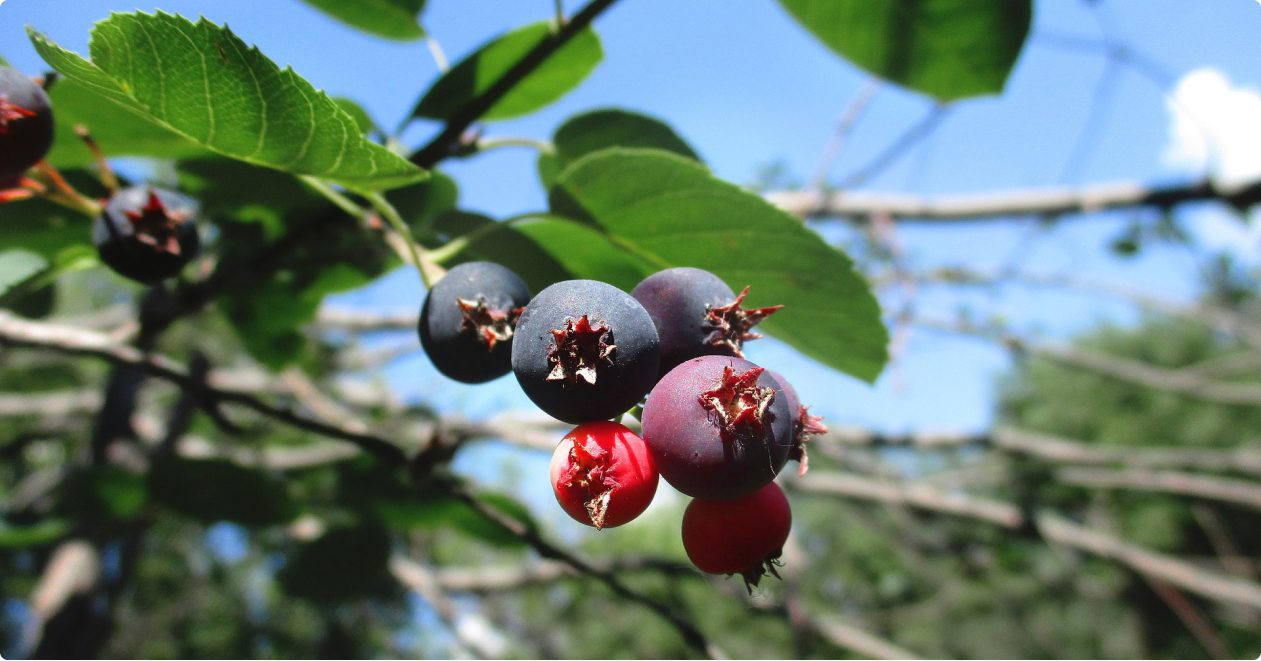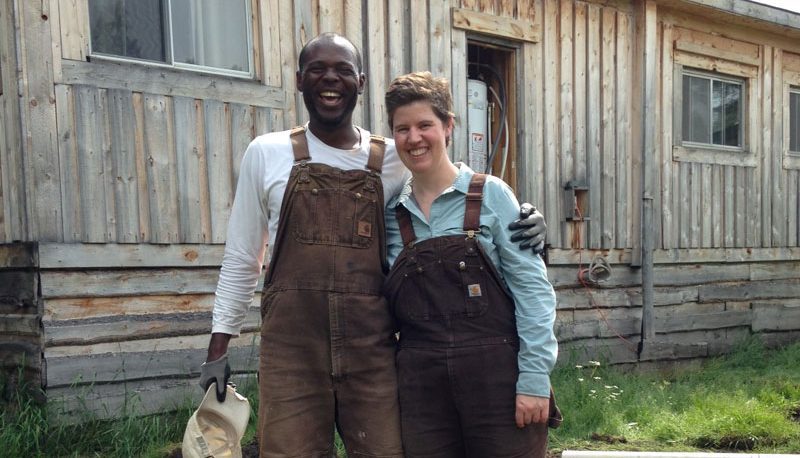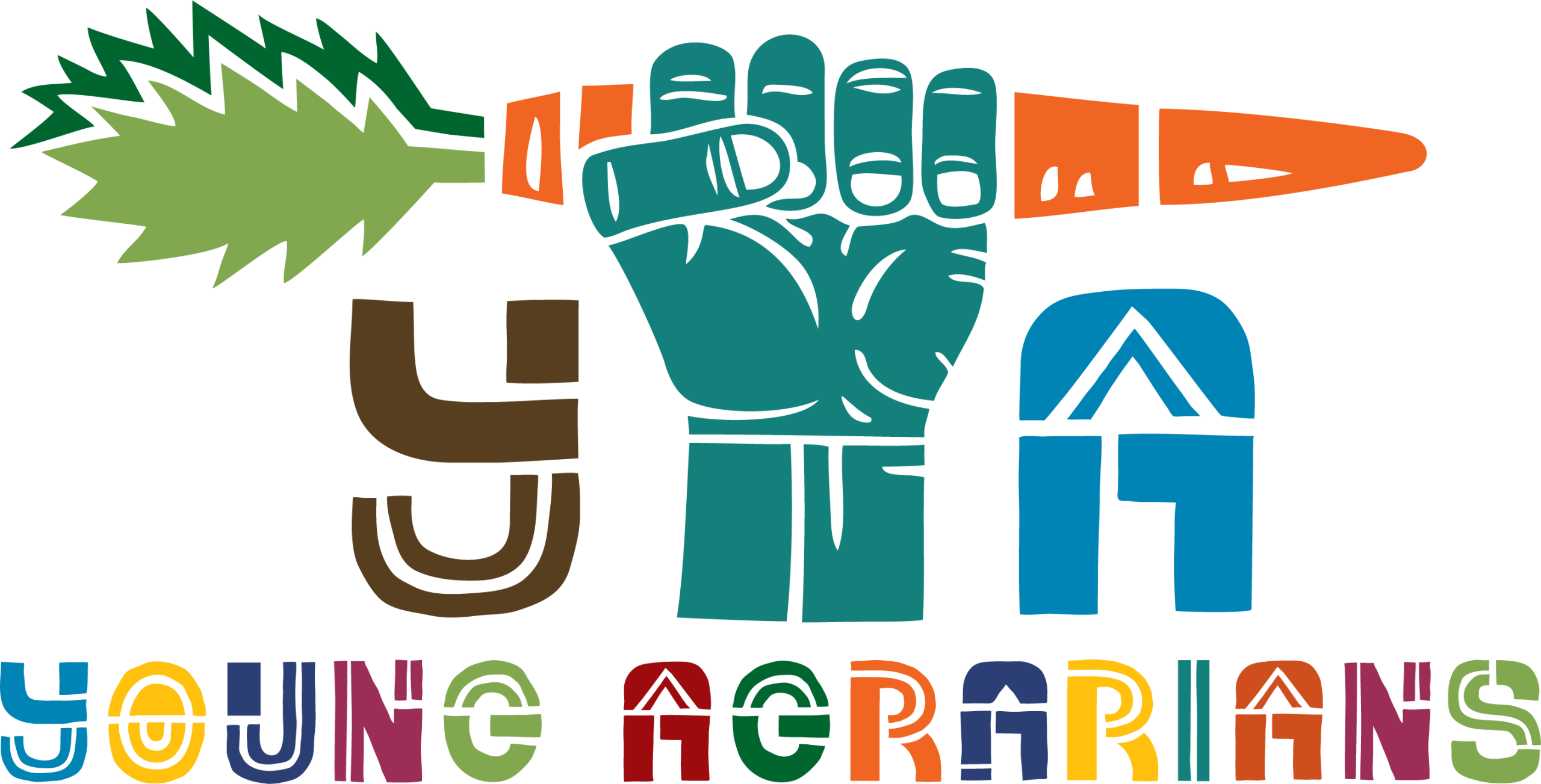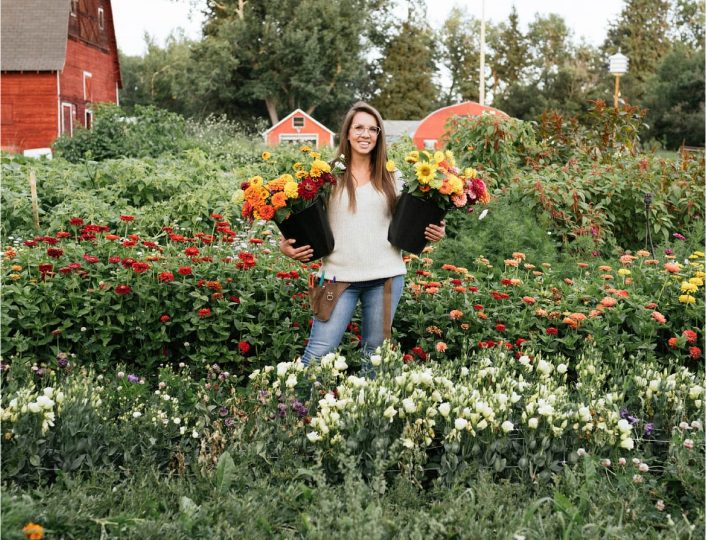 Filter by Popular Categories
Filter by Popular Categories
ABOUT
Young Agrarians (YA) is a farmer to farmer educational resource network for new and young ecological, organic and regenerative farmers in Canada.
We recognize the Indigenous lands and territories that we work on and alongside, and are committed to providing programs that are inclusive and available to farmers and friends of diverse backgrounds.
ORGANIZATION
YA is volunteer-driven, with farmers across the country organizing on-farm events and building community to create spaces for knowledge sharing and growth.
The network is made up of a diverse array of food growers and lovers including farmers, fishers, holistic managers, market gardeners, ranchers, seed savers, food activists, bee keepers, community gardeners, and food and farm organizations.
YA is a program of Agrarians Foundation (AF), whose mission is to educate the public by providing courses, seminars, workshops, and counselling about agriculture, farming, food processing, entrepreneurship, community economic development and environmental sustainability.
In 2012, we were excited by what new farmers groups like the The Greenhorns and the National Young Farmers Coalition were doing in the U.S. We wanted to get something growing in Canada that provides on the ground programs for new and young people to grow food and farm.
What is a Young Agrarian?
A new person into farming, rural or urban, who values food, farmers, ecology and community. Our core focus demographic is 20-40. If you are 3 or 93, please join us – we love agrarians of all ages.
Values
Agro-Ecology, Capacity Building, Collaboration, Community, Diversity, Equity, Food Sovereignty, Inclusion, Workers & Migrant Rights, Land-Access, Mentorship, Participatory Frameworks, Reconciliation, Support for Start-Ups
Organizationally, YA believes that it is our collective responsibility to care for and respect the land that we live on and depend upon for water, food and shelter. All of us can do our part to nurture local, ecological and equitably produced food systems choosing with our dollars, values and hands to consume and steward foods that are healthy for us and future generations.
Why is growing new farmers and regenerating the land important?
- Canada’s farming population is shrinking, reaching a historic low in 2021. According to Statistics Canada, in 1931, one in three (33%) Canadians lived and worked on farms; that number is now 1.3%. (Current population of Canada is 38,365,690; the number of farmers in Canada in 2021 was 504,507 or 262,455 farm operators.) aring for the soil and health of the land
- Stats Canada average age of Farmers in 2021 = 56. Only 8.6% of farmers are 35 and younger (22,635 farmers).
- It is hard to make farming viable. There is a $20,000 average yearly net loss for farmers in Canada, with 1 in every 2 farmers under 55 reporting that off farm employment is their main source of income.
- Land access is the #1 challenge for new farmers. The real estate value of farmland is at an all-time high – since 2007, farmland prices in Canada have increased by 132%.
- Land-use changes and fossil fuel burning are the two major sources of the increased CO2 in the atmosphere that is changing the global climate. Overall, land use and land-use changes account for some 31 percent of human-induced greenhouse gas emissions. Livestock now account for 50% of emissions from agriculture and land-use change.
Regenerating farmers is as important as regenerating the land.
The issues today in our food systems are complex. It will take many people and solutions to adapt to climate change. There is incredible urgency to ensure that we are using ecological practices to grow resilient and short supply chains for our communities that can adapt to climate change, sequester carbon, and regenerate ecosystems.
Help us grow the next generation of ecological farmers!
THE LAND
We are deeply grateful as an organization and network of farmers to live, work, farm, and grow foods on the unceded and traditional Indigenous lands and territories, including but not limited to:
Treaty 7 territory, the traditional territories of the Blackfoot Confederacy (Siksika, Kainai, Piikani), the Tsuut’ina, the Îyâxe Nakoda Nations, and the Métis Nation (Region 3); Musqueam; Squamish; Tsleil-Waututh; Kwalikum; Snaw-naw-as; K’ómoks; Quw’utsun; Ktunaxa; Syilx (Okanagan); Sinixt; Gitxsan; Treaty 6 territory, home of the Cree, Blackfoot, Métis, Nakota Sioux, Iroquois, Dene, Ojibway / Saulteaux / Anishinaabe and Inuit; and Treaty 2 territory, the traditional lands of Anishinaabeg, Cree, Assiniboine, Dakota, and Dene Peoples, and the homeland of the Métis Nation.
Young Agrarians recognizes the unresolved Indigenous land title and rights in the diverse territories in what is today called Canada. As we live and work in the context of and in response to a colonial system of laws and policies, it is important to acknowledge the historical and ongoing impact of agriculture and land enclosure on Indigenous lands and food systems.
In this context, we acknowledge our collective responsibility to position Indigenous Peoples and their experiences with coloniality, in a narrative of Truth and Reconciliation that places ecology, land stewardship, and Indigenous land title and rights at the forefront – if we are to sustain the Earth’s ecosystems in today’s rapidly changing climate.
“First Nations peoples’ have a special relationship with the earth and all living things in it. This relationship is based on a profound spiritual connection to Mother Earth that guided Indigenous Peoples to practice reverence, humility and reciprocity. It is also based on the subsistence needs and values extending back thousands of years. Hunting, gathering, and fishing to secure food includes harvesting food for self, family, the elderly, widows, the community, and for ceremonial purposes. Everything is taken and used with the understanding that we take only what we need, and we must use great care and be aware of how we take and how much of it so that future generations will not be put in peril.”
Our relationship to the natural world
The western science-based research and resource management system treats land as a commodity rather than a relationship and sacred honouring. It is not possible to reconcile the commodification of land in a colonial system that fails to value the land as ancestral, spiritual and cultural home, and the basis of our relationships to the natural world. As an organization working with new and young farmers to increase access to knowledge, land, and infrastructure needed to grow food, it is important to identify this contradiction. Further, as we live in an inherently complex regulatory environment within an increasingly inflated capitalist system of land speculation, any solutions we create to ensure the present and future generations can access land call for complex systems thinking. There are no simple solutions to land access in the cultural, political and socio-economic context we live. Collectively, we need land to grow food and regenerate and protect ecosystems for a healthy future planet that can mitigate climate change.

In the context of Indigenous and settler groups working together, we believe that it is through relationships that cross-cultural spaces emerge and the giving back, reopening of lands for food provisioning and re-wilding of ecologies can be nurtured. It is our hope that there will be more pathways to reconciliation across these lands into the future. As an organization, we are working to cultivate capacity for working within cross-cultural frameworks with kinSHIFT to support farmers in our network to engage in decolonization and reconciliation processes through a relationship-based approach, at the landscape scale as they are defined by Indigenous and naturally occurring boundaries – towards the goal of a transition to a just land and food system.
The Young Agrarians network emerged to support a new generation to care for and love the land.
Many of the farmers in our network grow food and farm because of their environmental and social values; ecology is what is capturing people’s imagination and re-connecting them to the food system. The network works to facilitate knowledge sharing and community building to create the change we want to be. Our deepest hope is that the future of our food systems is diverse, interconnected, and resilient, embraces people of all walks of life and sustains the water, soil, and beings in ways that benefit and work alongside Indigenous Peoples and narratives and ways of knowing and caring for the land.
SOIL HEALTH & REGENERATIVE FARMING
The state of our planet calls for an overhaul of our food growing and farming practices. Young Agrarians is growing a new generation of farmers leading this change by managing soils in a way that adapts to climate change and restores ecosystems. Given the right practices, farming is uniquely positioned to address some of the largest challenges affecting our planet today.

What is regenerative agriculture?
Regenerative agriculture is a method of farming that “improves the resources it uses, rather than destroying or depleting them.” 1 It includes farming and grazing practices that, among other benefits, adapt to and mitigate climate change by rebuilding soil organic matter and restoring degraded soil biodiversity – resulting in both carbon drawdown from the atmosphere and improving the water cycle. 2 As land health and soil fertility improve, resilience to fire, drought and other detrimental climate change events increases.
What does it look like?
Regenerative Principles
- Minimize or eliminate tillage
- Protect and cover the soil
- Maintain living roots in the soil
- Increase biodiversity
- Integrate livestock
Regenerative Practices
The principles can be expressed in a number of different farming practices that include but are not limited to:
- Zero-till gardening and cropping
- Using multi-species cover crops in between cash crops
- Agroforestry, silvopasture and food forests
- Planting shelterbelts, ecobuffers and pollinator strips
- Integrating livestock grazing into cropping systems
- Planned grazing with one or multiple species
- Designing water systems into the landscape to capture and store water
How do we know regeneration is happening?
Farms across Canada are demonstrating the impact of regenerative farming that can benefit all of us.
Soil health – Civilizations rise and fall based on the quality of their soil. Regenerative farms focus on improving soil biology and see a return of microbes, fungi and macro-fauna, like earth worms! These soils are better able to fend off disease and pests but most importantly grow nutrient dense food.
Watersheds – Regenerative farms show improved water holding capacity in their soil. If farmland was better able to infiltrate water in the landscape, it would reduce the occurrence of urban flooding downstream. They also lower the use of inputs reducing nitrogen, phosphorus and pesticide run-off that enters into the water system.
Carbon Sequestration – Drawing carbon from the atmosphere is arguably one of the most important things we can do to mitigate climate change. Regenerative farming sequesters carbon into the soil, benefitting all of us.
Biodiversity – Regenerative farms are not only good for the farmer and the consumers, they create habitat for pollinators, native plants, and wildlife.
Natural Infrastructure – When we improve ecosystem health on the farm, it improves ecosystems downstream for all of society. Some call this natural infrastructure. Instead of building man-made infrastructure, farms can be part of developing strategic networks of healthy land that reduces flooding, improves water quality, slows down fires, and much more!

What about regenerating farmers?
In thinking about how we avoid depleting resources in our farming systems, one of the resources we need to remember is the farmer! Regenerative farming, for Young Agrarians, is also about replenishing and growing the farmers on the land and the communities around them to support ecological food systems. Regenerating farmers is regenerating the land.
At the same time that we are faced with the need to transition farms towards regenerative practices, we are also faced with a significant land transfer and succession challenge, as well as engaging more people into farming. Young Agrarians is uniquely positioned to address these converging challenges of transitioning farm practices, farms and farmland.
Sources:
1Rodale Institute
2The Carbon Underground and Regenerative Agriculture Initiative, 2017
3Washington State University: Regenerative Agriculture: Solid Principles, Extraordinary Claims




